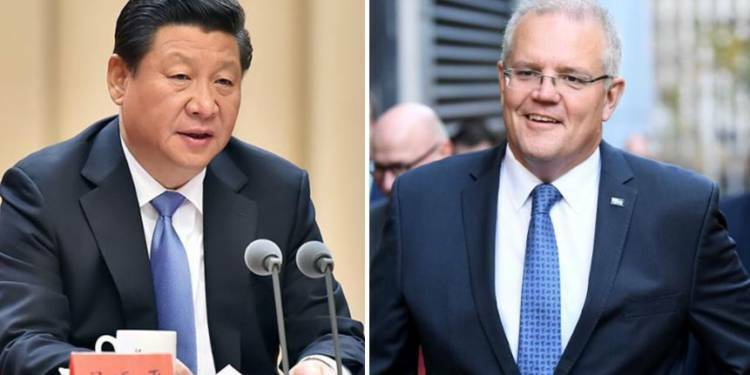China and Australia are locked in what can truly be described as a historic conflict. The Sino-Australia tussle started with Australian PM Scott Morrison criticising China’s pathetic Pandemic response. Things soon escalated into a bitter trade war with China looking to punish Australia. Yet, Beijing’s actions left the Chinese supply chains jeopardised, rather than punishing Australia. Now, things are moving to the next level, as China trembles in fear of Australia’s devastating military might.
Realising the threats posed by an expansionist and belligerent China, Australia has been looking to modernise its military forces with a massive spike in its defence budget. Canberra is spending big on all important assets including long-range missiles and Navy vessels. Meanwhile, China understands that Australia’s lethal military upgrades are aimed against it, and the reaction of a Chinese General also shows how Beijing has been intimidated.
Chinese Major-General Jin Yinan, who works as a professor at the People’s Liberation Army National Defence University criticised Australia’s military modernisation spree.
Yinan said, “We don’t need to take it seriously. [Australia] is not that strong, it’s not that powerful … Australia wants to rush to the front line of the conflict … then let it come, let it walk on the forefront of the conflict … then we can have a good fight. If it insists on intervening, it will only cause greater damage to Australia itself.”
The General described Australia’s warlike impulse as a consequence of its commitment to “white supremacy”.
But why did China suffer this great meltdown? It is now well understood that Chinese officials are not very good diplomats. A diplomat must be able to hide his thoughts while bluffing around but Chinese officials and Generals end up giving definite hints. Loud reactions from China are often a method to downplay substantive threats. Generally, when China is feeling the heat, it starts denigrating and dismissing its enemy.
In fact, even when Canberra was giving some severe diplomatic jolts to Beijing, the Chinese State media was making inflammatory remarks like calling Australia “chewing gum stuck on the sole of China’s shoes.” The loud reaction however gave away Beijing’s growing insecurities.
This time around also, Yinan’s reactions suggest that China is growing fearful of Australia’s military firepower. In fact, the Chinese General made the dramatic remarks in response to Australian Defence Minister Peter Dutton’s observations about the island nation of Taiwan.
On the question of Chinese aggression against Taiwan, Dutton said, “I don’t think it should be discounted. I think China has been very clear about the reunification and that’s been a long-held objective of theirs and if you look at any of the rhetoric that is coming out of China from spokesmen, particularly in recent weeks and months in response to different suggestions that have been made, they have been very clear about that goal.”
The Defence Minister added, “I think people need to be realistic about the activity. There is militarisation of bases across the region. Obviously there is a significant amount of activity and there is an animosity between Taiwan and China. For us, we want to make sure we continue to be a good neighbour in the region, that we work with our partners and with our allies and nobody wants to see conflict between China and Taiwan or anywhere else.”
The official Chinese response to Dutton’s remarks was a standard reiteration of the ‘One China Principle’. Chinese Foreign Ministry spokesman Wang Wenbin said, “It is hoped that the Australian side will fully recognise that the Taiwan question is highly sensitive, abide by the one-China principle, be prudent in its words and deeds, avoid sending any wrong signals to the ‘Taiwan independence’ separatist forces.”
But the other reaction from Major-General Jin Yinan was, of course, a bit too loud. Within Beijing, there is a clear concern of effective Australian military intervention in case of any Sino-Taiwanese escalation. This is why Beijing is deliberately downplaying Canberra’s growing military firepower.








